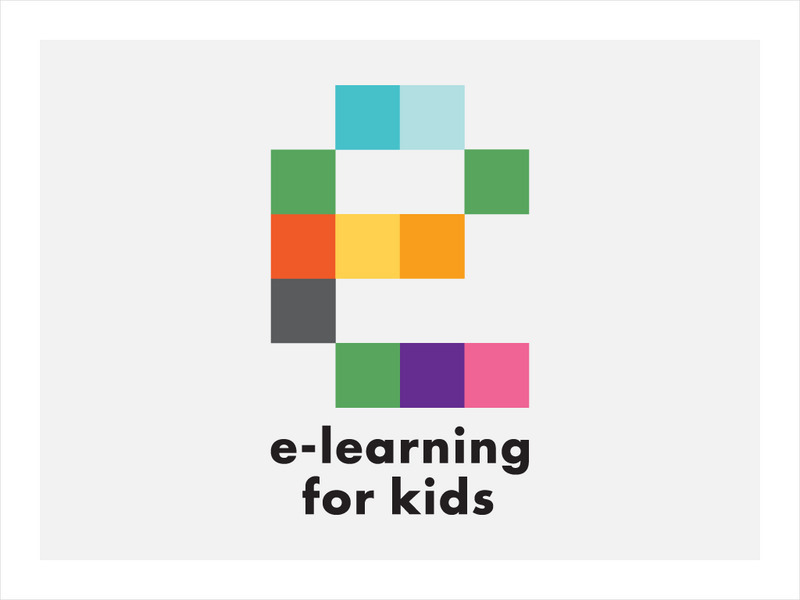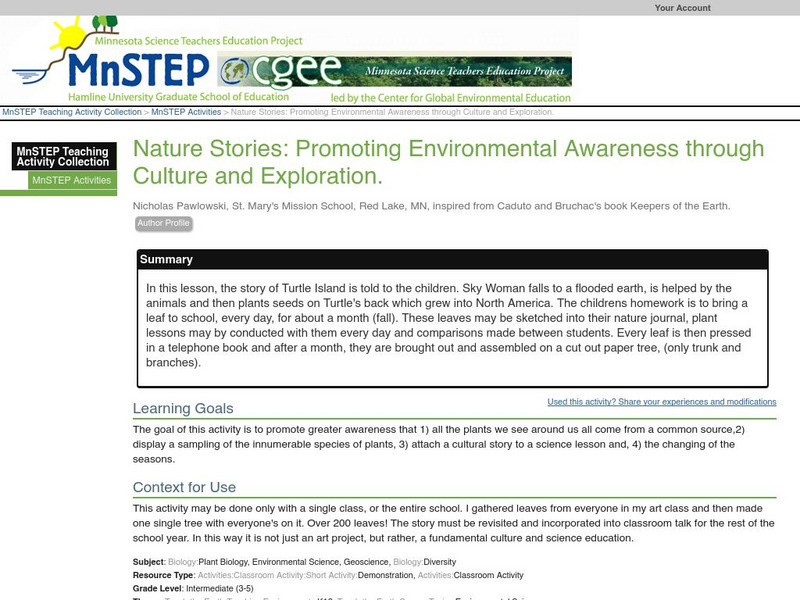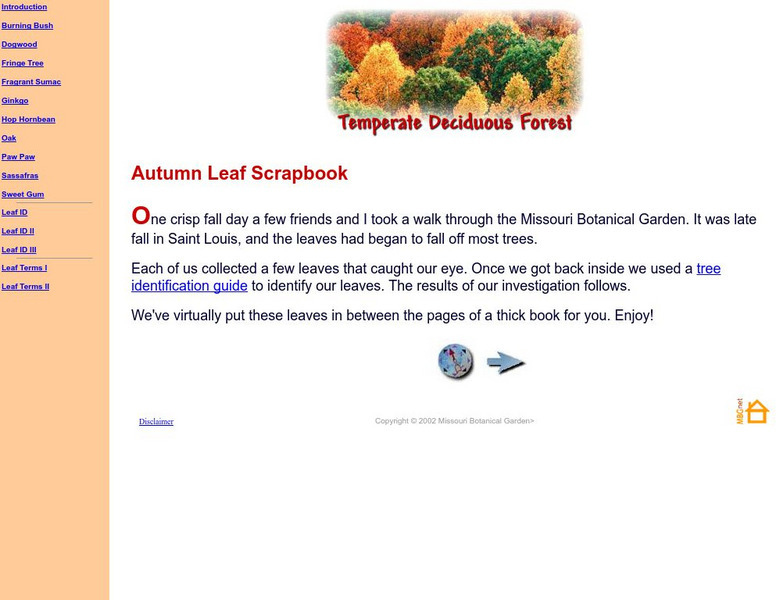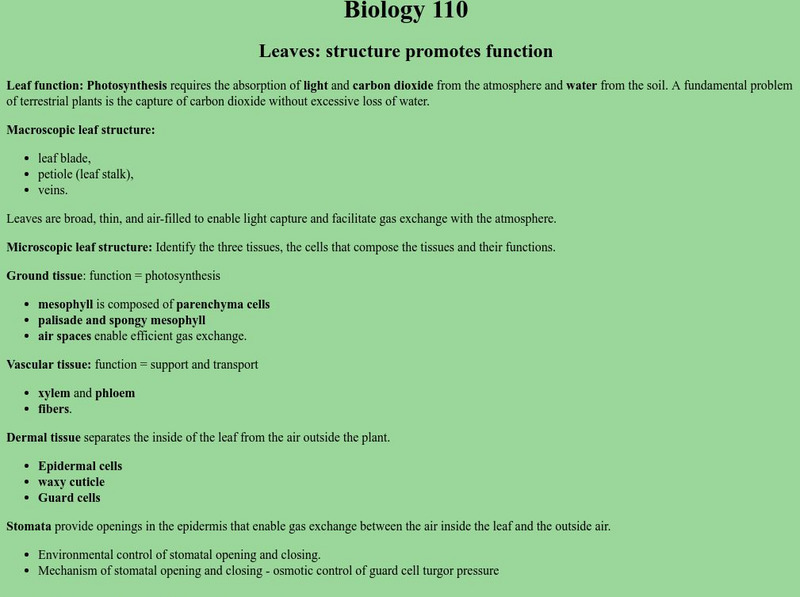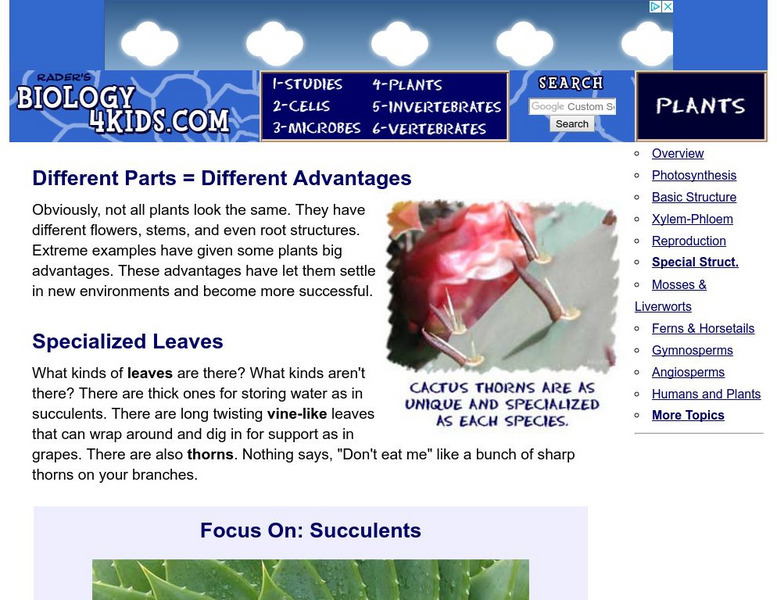E-learning for Kids
E Learning for Kids: Science: Iceland: Plants: What Parts Do Plants Have?
Explore Benny's garden, and he will show how plants and trees are built. Join him to to learn about basic plant parts.
E-learning for Kids
E Learning for Kids: Science: Norway: What Are the Functions of Different Parts of a Plant?
Heidi is going on a class trip with her class in Norway. Help her learn the functions of different parts of the plants found.
Environmental Education for Kids
Eek!: Evergreens
Site chronicles Wisconsin's Evergreen and Conifer trees. There are descriptions of the various tree types. Additionally, site details the uses of these trees in nature. Ideal for grades 4-8.
Science Education Resource Center at Carleton College
Serc: Promoting Environmental Awareness Through Culture and Exploration
In this lesson, the story of Turtle Island is told to the students. Each student will collect leaves and bring one to school, every day, for about a month. Discuss as a class where they come from and why they are all different. Every...
Science Education Resource Center at Carleton College
Serc: Tree Leaf Identification and Leaf Display Activity
In this Biology field activity, students collect tree leaves and seeds to make an identified collection after drying in a plant press, a phone book, or in magazines.
Science Education Resource Center at Carleton College
Serc: Observing Leaves and Descriptive Writing
In this activity, learners will be introduced to different types of leaves by going on a leaf walk. They will bring back a select few to the classroom, draw and write about one of their leaves, and then share with a partner and then the...
Science Education Resource Center at Carleton College
Serc: Going on a Leaf Hunt!
Students go outside take a closer look at leaves on a tree. The students collect leaves of different shapes or colors, and then sort into categories, and compare and contrast them to leaves that are non-native to Minnesota.
Science Education Resource Center at Carleton College
Serc: Graphing Fall Leaves
Students use leaf classifications they created to graph the properties of leaves they collected on their playground.
Missouri Botanical Garden
Missouri Botanical Garden: Biology of Plants: Plant Parts
Learn about the basic parts of a plant and their jobs.
Missouri Botanical Garden
Missouri Botanical Garden: Autumn Leaf Scrapbook
Learn how to examine a deciduous tree and how to identify the various leaves by their shape and color. There is a guide to leaf terminology with helpful accompanying diagrams.
TED Talks
Ted: Ted Ed: What Is Chromatography?
Find out why leaves change color in the fall, and learn how to do paper chromatography to separate the pigments found in a leaf. [4:24]
Other
Anatomy of a Leaf
This thorough site provides a wealth of leaf information which includes, leaf functions, origin of the leaf, meristem structure, and anatomy of a leaf (contains a drawing of a typical leaf cross section).
Other
Biology 101: Leaves: Structure Promotes Function
Discusses leaf anatomy and relates this discussion to the photosynthesis function of the leaf.
Other
Elm Care: How Trees Work
How do trees drink, how do trees breath, what is the structure of a tree? Answer these questions and more.
Writing Fix
Writing Fix: Season Mandala
In this lesson, Have You Seen Trees?, a book written by Joanne Oppenheim, and The Seasons of Arnold's Apple Tree, a book written by Gail Gibbons, are used as mentor texts. As a post-reading activity, students will record facts about the...
Other
Dcnr: Common Trees of Pennsylvania [Pdf]
A list of common trees in Pennsylvania, as well as specific information on each tree.
Biology 4 kids
Biology4 Kids: A General Plant Structure
Read about the basic structure of plants in this short, informational reference piece.
Biology 4 kids
Biology4 Kids: Different Parts = Different Advantages
A concise reference highlighting the specialized parts of plants and the jobs they do.
Smithsonian Institution
Smithsonian Learning Lab: Prehistoric Climate Change and Why It Matters Today
A slideshow will introduce the process of climate change that the earth has experienced since the beginning of time. Discover "leaf margin analysis" which scientists use while studying fossils to determine the temperatures they were...
CK-12 Foundation
Ck 12: Biology: Leaves
[Free Registration/Login may be required to access all resource tools.] Discusses different types of leaves and seasonal changes in leaves.
CK-12 Foundation
Ck 12: Biology: Photosynthesis
[Free Registration/Login may be required to access all resource tools.] Describes the role of leaves in photosynthesis.
Can Teach
Can Teach: Songs and Poems
This site features an extensive list of poems and songs for every event during the school year. Explore the seasons, colors, holidays, and more.
Other
Backyard Nature: Leaves
Why do plants have leaves? Are there leafless plants? Why do leaves fall in the Fall? Discover the answers to these questions and many more as you peruse this site.
Read Works
Read Works: Parts of a Tree
[Free Registration/Login Required] An informational text about how leaves, branches, bark, and roots make up the parts of a tree. A question sheet is available to help students build skills in reading comprehension.


